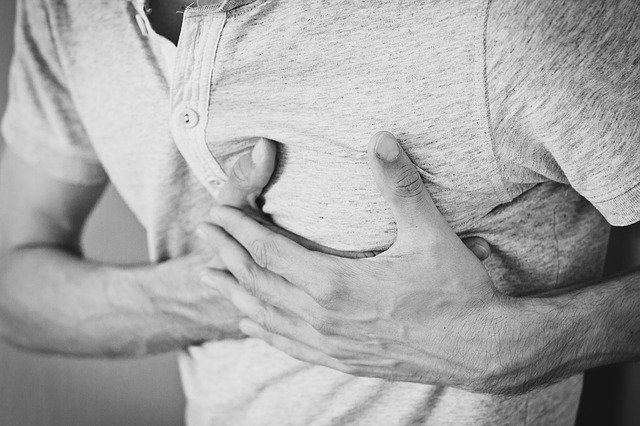
When the flow of oxygen-rich blood to a part of the heart muscle is suddenly blocked, a heart attack will happen.
Heart muscle can die very fast when it cannot get blood.
Knowing the common signs of a heart attack could start the treatment early and save a patient’s life.
Researchers suggest that there are four big signs of a heart attack.
You have chest pain or discomfort
This is the most common signs of a heart attack. Most heart attacks cause discomfort in the center of the left chest.
The pain may last a few minutes and comes and goes.
You have upper body discomfort
You may feel pain in your arms, shoulders, neck, jaw or upper part of the stomach. You may also have back pain.
You find it hard to breathe
When you are resting or in daily physical activity, you find you cannot breathe easily. It may occur with chest pain.
You feel tired for no reason
You may feel quite exhausted for no obvious reason even you do not do any heavy physical activity. The feeling may last a few days.
In addition, you may experience other signs of a heart attack, such as feeling nausea, breaking out in a cold sweat, vomiting and feeling dizzy.
If you think you have a heart attack, call 911 immediately. Every minute counts, and you need to act as fast as you can.
Besides the common signs for heart attacks, you also need to pay attention to unusual signs of heart disease:
You snore or have sleep apnea. Sleep apnea is linked may increase the risk of both heart attack and stroke.
You have puffy feet and legs. Congestive heart failure sometimes can cause swelling in the legs and feet.
You have sexual function issues. For men, erectile dysfunction is a typical sign of arterial disease. If a woman is post-menopausal rapidly, her heart disease risk may increase.
You have gum disease. Gum health is strongly related to heart health.
You experience heartburn or indigestion. Sometimes this could mean a heart attack.
Copyright © 2019 Knowridge Science Report. All rights reserved.



